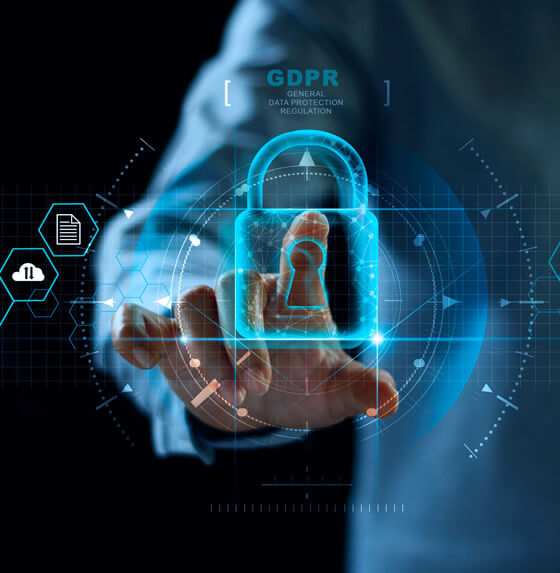1. Find out the Core Services OfferedBegin the process by identifying the core services the company offers. Risk assessments, Threat Management Incident Response, Vulnerability Assessments as well as Penetration Testing and Security Audits are all common services. Understanding the core competencies of a business will help you determine if they meet your specific requirements.
2. Assess Managed Security Services
Consider whether the company offers managed security services (MSS). MSS providers provide constant monitoring and management of the system. This can be vital for organizations without in-house security expertise. This is a great indicator of their ability to offer ongoing support.
3. Review Compliance and Regulatory Services
Make sure the cybersecurity company you choose provides services that help with compliance to international and local laws and regulations. This may include assistance in compliance with GDPR, PCI DSS, and local data protection laws. Businesses operating in highly-regulated fields need to focus their efforts on compliance.
Examine the capabilities for Incident Response
Analyze a company's response incidents. A comprehensive incident response strategy includes detection, containment and eradication of the threat, in addition to recovery, lessons learned, and recovery. Understanding how they handle incident response could provide insight into their ability to respond to cybersecurity breaches.
5. Specialized Services
Explore whether the company offers customized services specifically tailored to certain industries or needs. It could include IoT or cloud security as well as particular protections that are tailored to certain industries such as healthcare or finance. Specialized services are an indication of a company's ability and willingness to tackle unique problems.
6. Review Training and Awareness Programs
Ask the business whether they provide training and awareness for your employees. Training your employees is vital to reduce the risk of human errors. Human error is among of the main causes for security violations. Companies that offer comprehensive training can improve the security posture of your company.
7. Check for Threat Intelligence Services
Determine if the company offers threat intelligence services. These services allow organizations to be aware of the latest threats and weaknesses. Your security plan can be greatly enhanced with a robust threat intelligence capability.
8. Evaluate Technology Partnerships
Find out about the company’s technology partnerships. Collaborations and partnerships with the top cybersecurity companies can enhance services and give you access the latest tools. Security measures can be strengthened by a broad technology eco-system.
9. Examine Flexibility and Customization
The business should be able of tailoring its services according to the requirements of your company. As a security solution, the "one-size-fits all" method is not likely to be adequate. Therefore, understanding the flexibility of how the company can customize their solutions will allow you to address unique threats.
10. Re-examine Service Level Agreements (SLAs)
Examine the Service Level Agreements associated with the services provided. SLAs should clearly define the scope of services, response time, and performance measures. Understanding these agreements can help establish expectations for the quality of service. View the best Cyber security services for website recommendations including careers in cyber security, cyber security solution, security technology, cybersecurity and business, cyber security company, cybersecurity and technology, cybersecurity consultancy services, security managed, computer security services, data secure and more.
Top 10 Ways To Assess The Customer Service Of A Cyber Security Services Company
1. Start by assessing the support available. Determine if the business provides support 24/7. This is essential in the event of cyber-related incidents that can occur at any time. You'll have access for assistance at any time you need it.
2. Examine Support Channels
Explore the various ways to contact the company, like live chat, email, and ticketing systems. It is crucial to have several options for communication. This will give you to choose the best method for your requirements.
3. Check Response Times
Find out how fast the company responds to assistance requests. It is important to have an immediate response time in the cybersecurity industry, since immediate action could be required to protect against risks. Request specifics on the average response time for different types of queries.
4. Evaluation of technical expertise in Support Personnel
Check that the customer service team is made of well-trained experts with a solid understanding of cybersecurity. It is important to inquire about their experience and training in cybersecurity.
5. Investigate Escalation Procedures
Examine the company's support inquiries procedure for escalation. An escalation procedure that is clear and precise assures that difficult issues are addressed promptly by higher-level experts when necessary. Understanding this process gives them confidence in the capability to tackle issues efficiently.
6. Request Client Testimonials to Support
The feedback of customers is an excellent way to evaluate the efficiency of customer support. Testimonials provide insight into the efficiency and reliability of a support team, as well as how pleased customers are with the services.
7. Review Service Level Agreements (SLAs)
Examine the service level agreements that relate to customer support. SLAs will outline what is expected in terms of response time, resolution times and support level. Knowing these agreements will help set the standard for service.
8. Examine Proactive Interventions
Examine whether the business offers proactive support programs like regular check-ins, health assessments or security update. Active support can assist in identifying potential issues before they escalate, enhancing overall security posture.
9. Review the Training and Resources Offered
Learn about the training available and resources for your clients. Support should go beyond just the resolution of issues. Businesses that provide educational resources as well as training sessions, and access to knowledge base enable their customers to increase their cybersecurity awareness.
10. Review the Customer Support Reputation of the Company
Last but not least, find out the reputation of the firm within the market for customer service. Find reviews and testimonials on various websites and forums where customers can discuss their experiences. A strong reputation for customer service can be a good sign of a dependable cybersecurity company. Follow the most popular penetration testing company in uae for website info including cyber security education, inform security, network security tech, security in information security, security by design, cyber security security, defining cyber security, cyber security cybersecurity, managed cyber security services, cyber security platforms and more.

Top 10 Tips To Assess The Security Awareness Training Of A Cyber Security Firm
1. Review Training ContentStart off by reviewing the contents of the security awareness programs. Make sure that the material covers the most important topics such as social engineering and phishing. Also, make sure that compliance and protection of data are addressed. To provide employees with the skills to detect and effectively respond to threats, it is crucial to have a curriculum that covers every essential topic.
2. Options for customization are offered
Find out if the training will be incorporated into the company's culture and needs. The ability to adapt the training to the unique circumstances of your employees and issues can improve engagement and relevancy and, ultimately, improve information retention.
3. Assessment of Training Delivery Methodologies
Think about the method of delivery for the course. You may opt for in-person workshops, online courses, interactive simulations or webinars. It is possible to improve efficiency of learning by mixing different formats.
4. Interactive Elements
Check if interactive components are included in the training like simulations, quizzes and real-life scenarios. Interactive training can increase engagement and learning retention, making it simpler for employees to use their skills in practical situations.
5. Examine the frequency of updates
Find out the frequency and updating of the training content. Regular training sessions and updating the curriculum regularly are essential to ensure that employees are up-to-date with the latest threats and best methods.
6. Measurement of Effectiveness
Knowing how the company evaluates the effectiveness of their training programs is vital. Look for trends in post- and pre-training feedback as well as participant evaluations and incidents report information. It is essential to analyze the results of a program in order to assess its effectiveness and identify the areas that need improvement.
7. Check for Certification and Compliant
Examine if the program will include certification at the end of the program. Credibility is enhanced by certifications, and can demonstrate that the employees have gained the skills they require. In addition, make sure the training meets any relevant regulatory compliance requirements your organization may have.
8. Find testimonials and references
Find feedback from businesses who have utilized training services previously. Testimonials can give insight into the effectiveness of the program and how well it has been appreciated by employees. Positive feedback from customers could be a sign that a trainer has a good reputation for providing effective awareness-training.
9. Evaluation of Post-Training Training Support
Ask about support after training. Continuous resources, like periodic refresher courses, newsletters or access to a knowledge base will help to reinforce the learning and keep cybersecurity awareness at the forefront of employees' minds.
10. Examine Engagement and Building Cultural Connection
The last step is to evaluate the impact of your program for training in developing a security culture in your company. Look for initiatives that promote the continuous education of employees. This could be through security-related newsletters and seminars. A strong security culture encourages employees to take ownership of their role in protecting the organization. Take a look at the top iconnect for blog tips including careers in cyber security, information security information, information security usa, managed it services security, security on website, security it company, data and security, cyber security tech, cyber security sites, secure the data and more.
